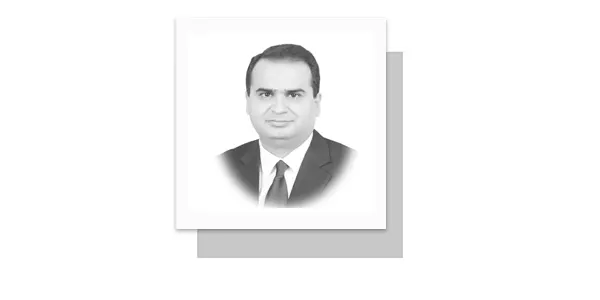ANY kind of sexual contact between an adult and a child is an abuse and offence. Sexual conduct by a teenager that is forced and with a younger child is also an abuse and offence. Children who have been sexually abused and received little or no counselling and parental support often display long-lasting emotional and behavioral reactions. These reactions are result of psychological trauma in the form of anxiety, chronic depression or post-traumatic stress disorder which is developed in mind after experiencing Child Sexual Abuse (CSA). If proper counselling is not provided to CSA victim, psychological trauma badly impairs the mental development and physical faculties of child and, may become more jeopardize as the child grows into an adulthood.
Some common emotional reactions in children after experiencing sexual abuse with them are fearfulness، especially at night or when separated from parents, clinging, dependent behavior, a return to babyish behavior that they had grown out of nightmare and sleep disturbance, bedwetting, grinding of teeths, stomach aches/pains, general misbehavior and naughtiness, whining, tantrums, attention seeking behavior and poor school performance etc. Although these types of reactions can also be seen in children facing other issues like death of parents, disturbed parental relationships and dysfunctional families, but these emotional reactions are also seen among the survivors of CSA and can be identified by conducting an in-depth case study. The probing in CSA cases is essential because it is mostly undisclosed.
CSA may also show its effects as the child grows into an adult. These include feelings of sadness, fear and anger, difficulty in marital/sexual relationships, lack of trust or total trust on others, shame and low self-esteem, inability to say no to anyone, physical ailments like neck, back, stomach pain, gynecological problems, depression, suicidal thoughts/attempts, sleeping/eating disorders and drug abuse etc. A strong sense of revenge, hate towards the abuser and strong urge to confront the abuser, dissociation, feeling of numbness, self-injury and self-harm are also experienced by some survivors of CSA.
Another emotional impact of CSA is the involvement of CSA survivors in commission of criminal offences/abuses. It is witnessed that juvenile and adult offenders who are involved in committing offences/abuses have a history of CSA occurred with them. The reason behind their involvement in such offences is to get relieved from the CSA emotional trauma. All survivors of CSA do not become offenders, however, majority of those who commit offences have a history of CSA.
The severity of the emotional trauma after experiencing CSA depends upon the nature of abuse. More severe nature of CSA shall have strong and long-lasting emotional disturbance. For example, if the abuse is in the form of a rape/sodomy, the effects can be severer than that of fondling, bad touch or kissing. Nevertheless, if it is touching and fondling by a close relative over a prolonged period of time, it may also have emotional effects as severe as that of a one-time incident of rape/sodomy. Similarly, age of the victim and time period of abuse also matters a lot. A toddler or younger child victim shows a different extent of reactions of abuse than that of an adolescent.
The above-mentioned emotional reactions and offending behaviors adopted by children/adults after experiencing CSA are all normal responses to an abnormal event. One should not be angry and blame the victim of CSA for these behaviors. The important thing is the treatment of emotional trauma received by the CSA victim. The treatment is available in the form of psychotherapy and psychological counselling by trained and certified psychiatrists/psychologists in rehabilitation centers. Counselling/psychotherapy provides a safe place to talk about what happened, teach coping skills to manage emotional reactions and help children do not blame themselves, feel ashamed or develop awkward ideas such as that no one can be trusted or the world is a very dangerous place. An immediate rehabilitation treatment after the CSA incident usually shows quick recovery from emotional trauma in 3-4 sessions when the victim realizes that it was not his fault that sexual abuse happens with him. If proper rehabilitation services are not provided to the victim in time, then such a child will not have normal family and social life and his future will be at complete risk of destruction.
The care, love and support of family is the most important factor in child’s recovery from emotional trauma. All children after experiencing CSA are not immediately able to tell parents about it. They are often worried about the consequences of disclosure of abuse and believe that they have done something wrong or because of their fault, abuse committed with them. If parents observe any of the symptoms/emotional reactions described above in their children, they should be alerted and must inquire about it from the victim in friendly manner after taking him into confidence. If a clue is established that abuse has occurred, a victim must be provided rehabilitation treatment immediately. If parents ignore or neglect the child after observing emotional trauma in him/her or do not believe a child who has been abused or support the abuser, there can be a severe damage to the child’s personality. What every child victim needs, is to be believed and to know that he is not at fault. When the parents support and stand up for the CSA victim, the child has an excellent chance of recovering from the emotional impact of sexual abuse.
—The writer is Advocate High Court & Human Rights Activist, Former Programme Policy Advisor at National Commission on the Rights of Child, Govt. of Pakistan, Islamabad.
Email: adv.wajahat.ali@gmail.com









